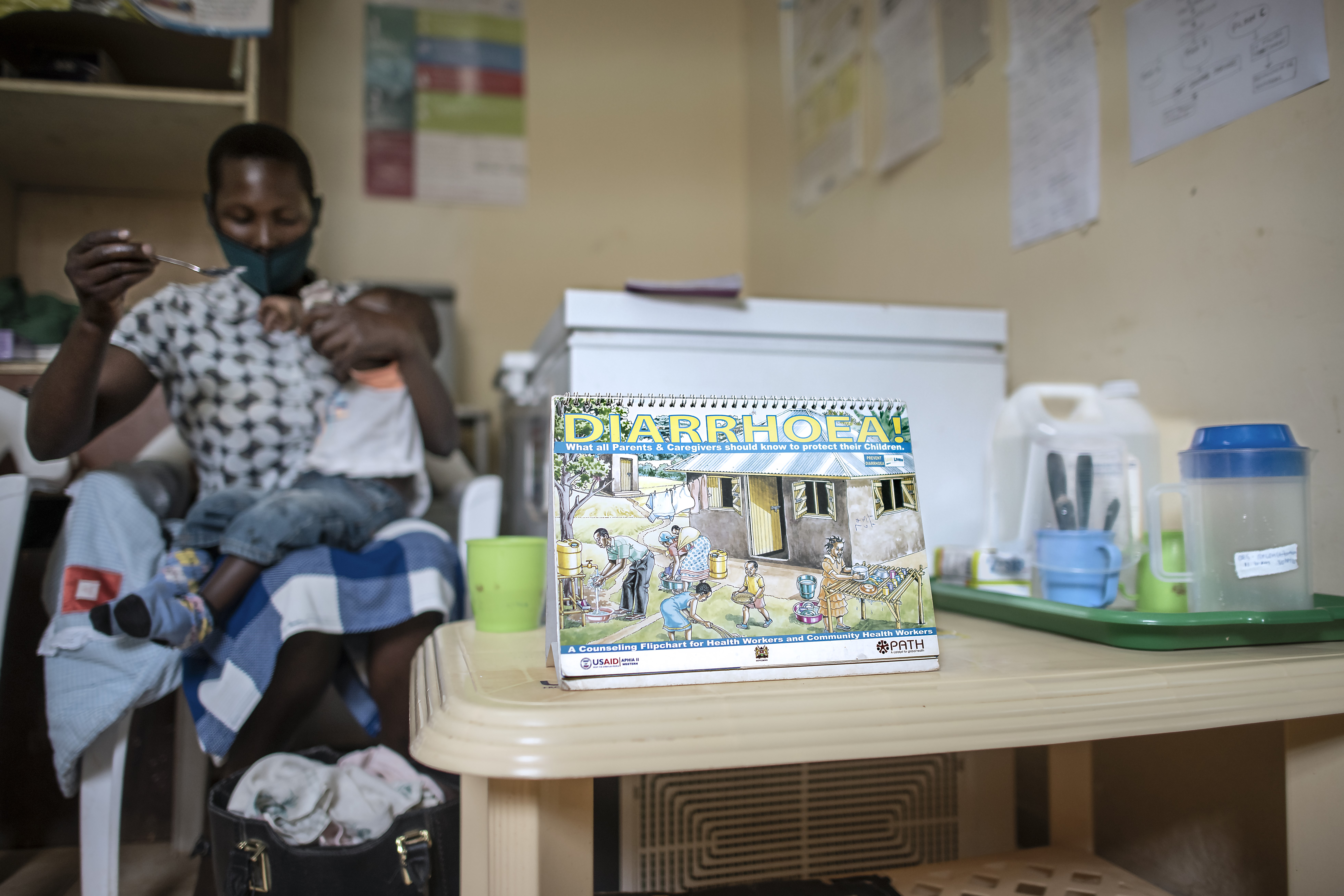
Collaboration and dissemination essential to cholera control strategy development

A health facility in Kakamega County, Kenya, displaying community education materials on diarrheal disease. Credit: PATH/Anthony Karumba.
In recent months, the world has seen a rise in global cholera outbreaks. This is caused by compounding factors like unsafe drinking water, migration, crowding, extreme weather events due to climate change, and more that increase risk of waterborne diseases like cholera. When cholera outbreaks emerged in Kenya and Uganda, national governments looked to PATH for support in mitigating risk to their communities.
In Uganda, PATH provided technical support to update an existing cholera control strategy to reflect the latest contextual realities. PATH supported the Ministry of Health (MOH) to host writing workshops, bringing together local technical experts to draft an amended strategy. In Kenya, PATH provided technical assistance to the MOH in drafting a new cholera control strategy and applying to Gavi, the Vaccine Alliance for stockpile supplies of oral cholera vaccine (OCV). PATH also provided technical assistance in the development of training material for the OCV rollout and helped create guidelines on comprehensive management of cholera.
A common challenge across countries is competing priorities when working to prevent or address outbreaks from numerous pathogens, usually including cholera, typhoid, malaria, and related common causes of disease. Many countries have limited personnel and resources to ensure control strategies are completed, disseminated, and implemented in a timely fashion. For example, in Uganda, an Ebola outbreak demanded urgency from the same technical team working on the cholera control strategy. In Kenya, transition in government leadership and health sector reforms interfered with outbreak response. Unfortunately, we know that outbreaks do not respect election timelines.
To keep momentum, the role of collaboration was essential. In future cholera strategy development, it will be important to bring together organizations from different sectors to support the Ministry of Health, including water, sanitation, and hygiene (WASH) advocates, the private sector, nonprofit organizations, the World Health Organization (WHO), and more.
A key step for cholera—and indeed, for any national strategy—is the need to disseminate to the local level, including health centers, small clinics, community health workers, opinion leaders, and community members themselves as many people do not know that a vaccine is available for cholera. Dissemination of cholera control strategies improves community awareness and education while also fostering multi-sectoral collaboration among health departments, NGOs, and local authorities.
Whether at the national or the local level, the key is to reach as many sectors and people as possible to ensure that cholera remains top priority.


